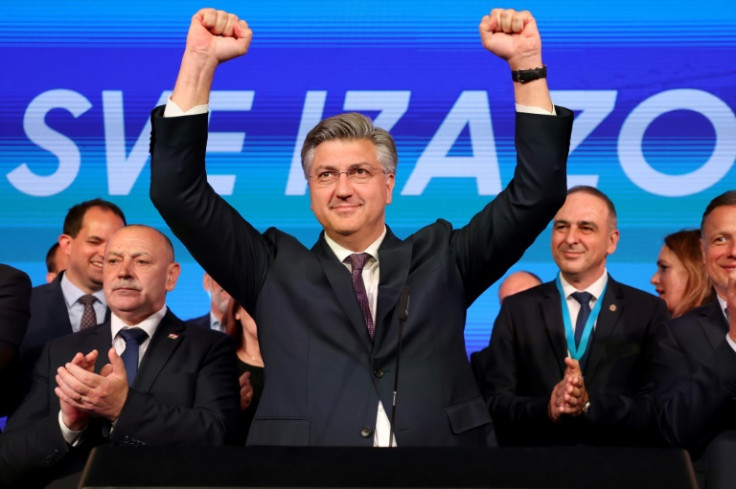
Croatian parties scrambled to form a ruling coalition Thursday, a day after an election in which the ruling conservative party won the most seats but not a parliamentary majority.
Prime Minister Andrej Plenkovic's Croatian Democratic Union (HDZ) won 61 seats in the 151-member assembly, near-complete results showed.
A centre-left coalition led by the Social Democrats (SDP) won 42. It was followed by the nationalist right-wing Homeland Movement party with 14 seats.
An ultra-conservative party and a green-left one won 11 and 10 seats each.
It will be known "very soon with whom we will form a new majority in the parliament", Plenkovic, 54, said Thursday on Facebook.
"We are continuing the talks today."
But SDP leader Pedja Grbin said earlier the party will also try to cobble together a majority, although their task appears more difficult.
Analysts say that the HDZ has the most comfortable position to gather a majority of 76 MPs while the right-wingers could be key.
"The Homeland Movement (DP) is the most likely kingmaker while the talks will be tough and uncertain at least in the first phase," political analyst Zarko Puhovski told AFP -- a view shared by most of his peers.
The DP, known for its nationalist and anti-migrant rhetoric, said Thursday it would focus namely on Croatia's "demographic recovery, national security and protection of borders" where they would like to see the army deployed.
The Mozemo (We Can in Croatian) green-led party called formations "from the left to the right who have said over four years that their main goal is to destroy the corrupt" government to join forces and "oust the HDZ from power".
"That goal is still achievable," it said on Facebook.
Corruption has long been the Achilles' heel of the HDZ, in power in Croatia for most of the time since its 1991 independence from Yugoslavia.
"Now we had the opportunity to say that we don't like it (corruption) but nothing happened, so we will probably live with it for the next four years too," engineer Bartul Marunic, 27, told AFP.
The elections were held after a bitter campaign between Plenkovic and left-wing populist President Zoran Milanovic.
The showdown came as the European Union nation wrestles with corruption, a labour shortage and the highest inflation rate in the eurozone and undocumented migration.
For months, Plenkovic and his HDZ seemed poised for an easy victory that would secure his third term as premier.
Plenkovic has inisted on his role in guiding the country of 3.8 million people into the eurozone and Europe's passport-free Schengen area last year.
But in mid-March, Milanovic -- who tops political popularity surveys -- made the shock announcement that he would challenge Plenkovic and become candidate for the Social Democrats.
Milanovic canvassed across Croatia challenging the country's top court ruling that he could only stand in the election if he stepped down as president first.
On Thurdsay, Milanovic said that the talks "on the creation of a new parliamentary majority are ongoing".
"The mandate to form a new government can only be given to a person who proves he enjoys the support of 76 deputies," he said on Facebook.
In Croatia, the president names a prime-minister designate, backed by a majority of MPs, who is then voted in by the assembly.







